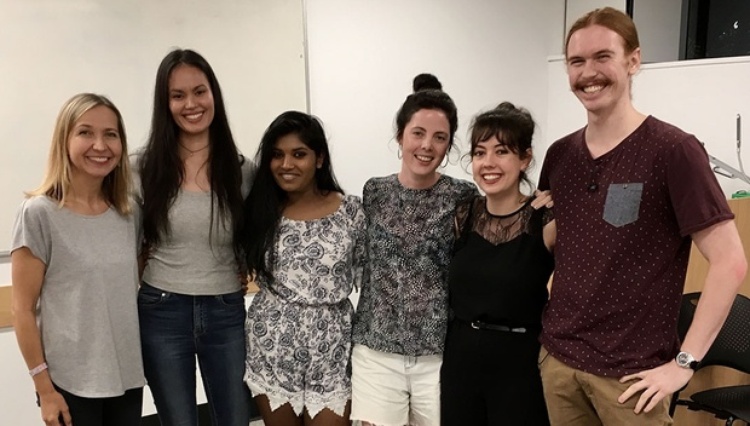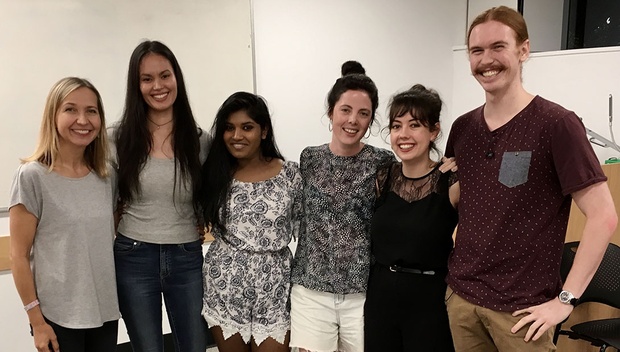“The support of the local community will be essential in keeping this program alive, as well as maintaining access to the study of Italian at a tertiary level across Australia,” Visocnik said.
“Griffith University is the last remaining and only university that offers Italian studies in Queensland.
“The teaching of tertiary-level Italian in other countries is essential for the dissemination of our language and culture in the academic field, and remains an intellectual focal point for Italians abroad.
“It’s important that the Italian community, associations and institutions in Queensland are united and ready to work together to defend the program, so that we can preserve our cultural identity.”
Visocnik retraced the history of Italian studies in Queensland.
“The Italian studies program has existed since the late ’70s,” she said.
“The university was founded in 1971, so the program was introduced quite soon after its creation.
“Let’s not forget that the university is named after Sir Samuel Griffith, a well-known jurist and a premier of Queensland.
“He was the first and only Australian translator of Dante’s Divine Comedy.”
An expansion for the program was proposed in 2016, but was suddenly axed.
“The Italian studies program was developed in the ‘80s and ‘90s under the guidance of the great Professor Carlo Zincone – who unfortunately passed away last year,” Visocnik said.
“In the 1990s, Professor David Moss, who was the inaugural chair of the Australasian Centre for Italian Studies, taught the European studies and the Italian studies programs.
“At that time, there were five full-time teachers on staff and at least two contract tutors – Bernadine Leon and Rosalia Miglioli.
“From 2000 to 2016, the Cassamarca Foundation subsidised Dr Claire Kennedy’s place within the faculty.
“Together with Tiziana Miceli, we created a contemporary Italian language and culture program, which is offered at three Griffith University locations – the Gold Coast, Nathan and South Bank campuses – as well as to students from all the other Brisbane universities.”
Over time, the number of teachers on staff shrank and Visocnik took on the role of coordinating the Italian program, remaining the only full-time professor.
“Luckily, I was able to count on Rosalia Miglioli, Bernadine Leon and Gabriella Blasi,” she said.
“These talented contract workers were with the faculty until the end of 2020, when COVID-19 forced us to make many changes.
“Griffith University, like all other Australian universities, has been severely affected financially by the border closures and the decline in enrolments of international students.
“All programs have undergone fierce scrutiny, which has resulted in courses being cut and degrees with fewer areas of specialisation.
“At the beginning of 2021, with the help of some hard-working colleagues, we questioned the university’s choices, and their decision was fortunately revoked.
“Therefore, Griffith’s Italian program still exists as a major, along with the Honours and PhD programs, with face-to-face and online courses offered.
“Subsidies from the Ministry of Foreign Affairs and International Cooperation made this possible.”
Visocnik wanted to thank the institutions that have fought to keep the program alive.
“The Ministry of Foreign Affairs and International Cooperation provided Griffith with a grant for 2021 and 2022 that has undoubtedly helped to maintain the Italian programs,” she said.
“The grant allows an Italian graduate, selected by the ministry, to be assigned to an Italian program of an Australian university.
“We were lucky enough to be able to count on the support of Consul General of Italy for Queensland and the Northern Territory Salvatore Napolitano and the former director of education at the Italian Embassy in Canberra, Dr Anna Rita Tamponi.”
Visocnik has now issued a plea to the wider community:
“We’re looking towards the future with hope and enthusiasm, but we need the support of the entire Italian community in Brisbane and Queensland.”
“We’re the bridge between Australia and Italy; we have to make sure that we’re able to share Italian culture and language with Australian students,” she concluded.












